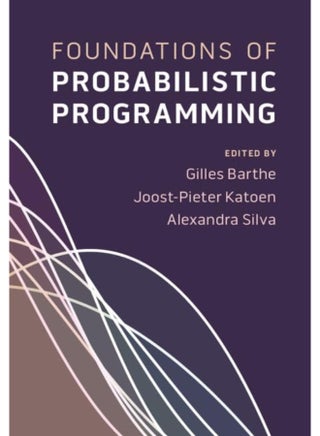Free & Easy Returns
Best Deals




| Publisher | Cambridge University Press |
| ISBN 10 | 110848851X |
| Book Format | Hardcover |
| Book Description | What does a probabilistic program actually compute? How can one formally reason about such probabilistic programs? This valuable guide covers such elementary questions and more. It provides a state-of-the-art overview of the theoretical underpinnings of modern probabilistic programming and their applications in machine learning, security, and other domains, at a level suitable for graduate students and non-experts in the field. In addition, the book treats the connection between probabilistic programs and mathematical logic, security (what is the probability that software leaks confidential information?), and presents three programming languages for different applications: Excel tables, program testing, and approximate computing. This title is also available as Open Access on Cambridge Core. |
| Publication Date | 2020-12-03 |
| ISBN 13 | 9781108488518 |
| Author | Gilles Barthe |
| Language | English |
| About the Author | Gilles Barthe is Scientific Director at the Max Planck Institute for Security and Privacy and Research Professor at the IMDEA Software Institute, Madrid. His recent research develops programming language techniques and verification methods for probabilistic languages, with a focus on cryptographic and differentially private computations.Joost-Pieter Katoen is Professor at RWTH Aachen University and University of Twente. His research interests include formal verification, formal semantics, concurrency theory, and probabilistic computation. He co-authored the book Principles of Model Checking (2008). He received an honorary doctorate from Aalborg University, is member of the Academia Europaea, and is an ERC Advanced Grant holder.Alexandra Silva is Professor of Algebra, Semantics, and Computation at University College London. A theoretical computer scientist with contributions in the areas of semantics of programming languages, concurrency theory, and probabilistic network verification, her work has been recognized by multiple awards, including the Needham Award 2018, the Presburger Award 2017, the Leverhulme Prize 2016, and an ERC Starting Grant in 2015. |
| Number of Pages | 582 pages |

